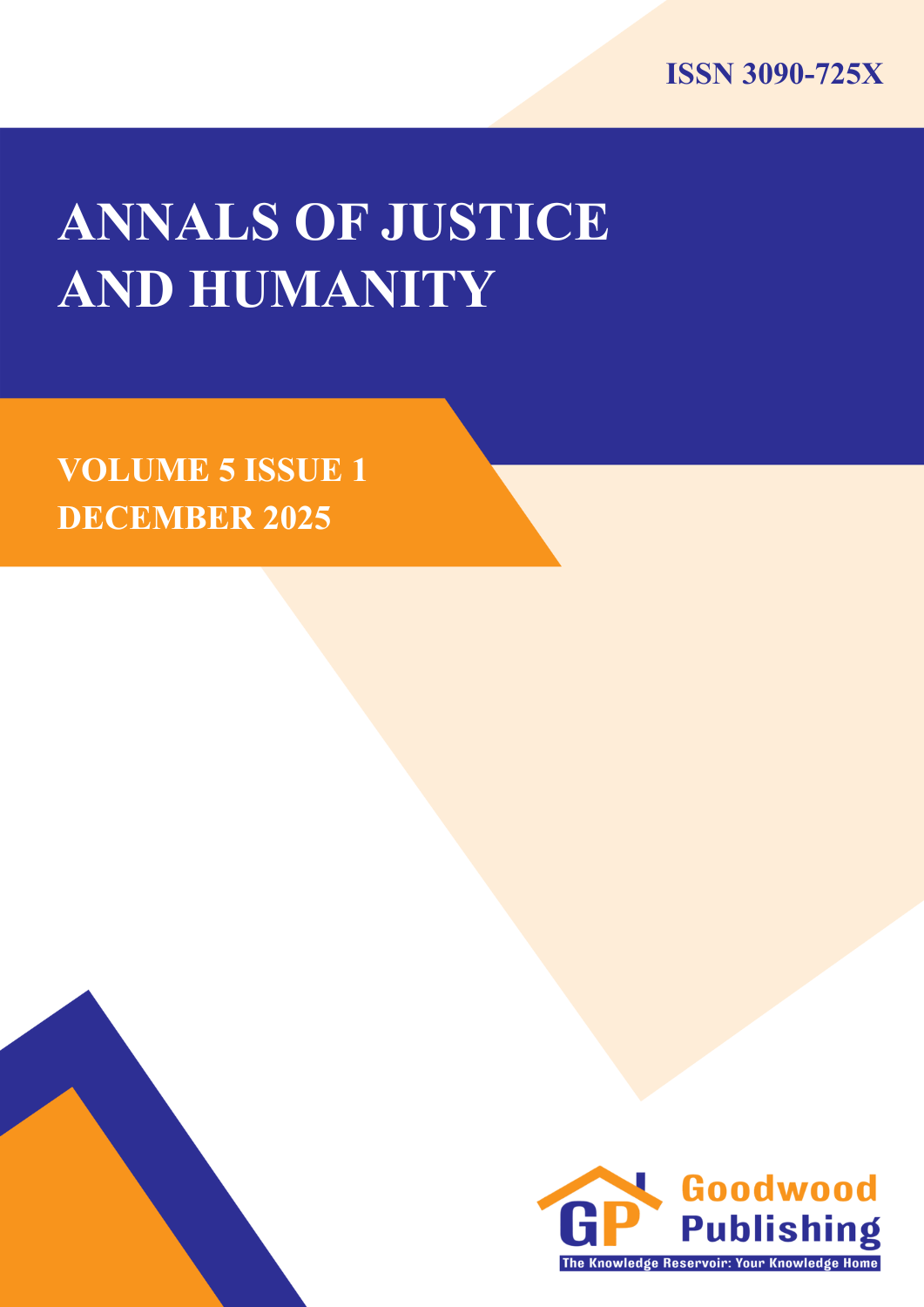Article Details
Vol. 5 No. 1 (2025): December
Juridical analysis of the application of the code of ethics to notaries who commit occupational violations
Abstract
Purpose: This study aims to analyze the legal arrangements governing the Notary code of ethics in Indonesia, particularly in Tanjungpinang City, examine its practical application in cases of office violations, and identify the obstacles and solutions in enforcing professional discipline.
Methodology: The study applies normative and empirical juridical approaches, using legal reviews of the Notary Position Law and INI Code of Ethics, supported by interviews, documentation, and field observations of supervisory practices by the Regional Supervisory Assembly and the INI Honor Council in Tanjungpinang City.
Results: The study finds that although notarial ethical regulations are comprehensive, practical enforcement remains inconsistent due to persistent violations, low ethical awareness, weak coordination, and limited public legal literacy.
Conclusions: The enforcement of the notarial code of ethics in Tanjungpinang City is still suboptimal despite sufficient normative frameworks. Effective enforcement requires strengthening institutional coordination, raising public awareness, and conducting periodic evaluations of ethical regulations.
Limitations: This research is geographically limited to Tanjungpinang City and primarily focuses on current supervisory mechanisms. Broader comparative studies across different regions could provide deeper insights into systemic issues in notarial supervision.
Contribution: The study contributes to the discourse on professional accountability in the notarial field by highlighting the gap between normative regulation and empirical practice. It also provides recommendations for improving institutional oversight and public legal awareness, thereby enhancing legal certainty and professional integrity in notarial services.
Keywords
How to Cite
Download Citation
References
- Avicenna, A. F. (2022). Penerapan Sanksi Bagi Notaris yang Lalai dalam Membuat Akta Otentik. Officium Notarium, 2(3), 466-475. doi:https://doi.org/10.20885/JON.vol2.iss3.art9
- Dewi, A. F. D., Kumalasari, D. S., & Setyanti, S. W. L. H. (2025). Mengelola Kinerja dengan Perspektif Gender: Analisis Pengembangan Karir, Reward, dan Punishment. Studi Ilmu Manajemen dan Organisasi, 6(2), 305-316. doi:https://doi.org/10.35912/simo.v6i2.4255
- Erniyanti, E. (2024). Analysis of the Impact of Revisions to the Consumer Protection Law in the Digital Era. Enigma in Law, 2(1), 59-63. doi:https://doi.org/10.61996/law.v2i1.50
- Erwan, P., & Citra, H. (2025). Legal Review of The Legality of Authentic Deeds and Private Deeds According to Law No. 2 of 2014 Concerning the Position of Notary in Land and Building Lease Agreements. Jurnal Ilmiah Ekotrans & Erudisi, 5, 100-110. doi:http://dx.doi.org/10.69989/g59d7z47
- Fahrizal, I., Budiono, A., Khalid, J., & Santoso, B. (2025). From inclusion to engagement: the psychological safety role in mediating inclusive leadership and diversity initiatives in the Indonesian workplace. Annals of Human Resource Management Research, 5(2), 243-260. doi:https://doi.org/10.35912/ahrmr.v5i2.2795
- Fatriansyah, F. (2023). Peran Majelis Pengawas Wilayah Notaris Dan Majelis Kehormatan Notaris Terhadap Pembinaan dan Pengawasan Notaris Dalam Undang-Undang Nomor 2 Tahun 2014 Tentang Perubahan Atas Undang-Undang Nomor 30 Tahun 2004 Tentang Jabatan Notaris. Legalitas: Jurnal Hukum, 14(2), 291-298. doi:http://dx.doi.org/10.33087/legalitas.v14i2.370
- Gundugurti, P. R., Bhattacharyya, R., Kondepi, S., Chakraborty, K., & Mukherjee, A. (2022). Ethics and Law. Indian Journal of Psychiatry, 64(1), 7-15. doi:https://doi.org/10.4103/indianjpsychiatry.indianjpsychiatry_726_21
- Kostruba, A. V. (2018). Legal Regulatory Mechanism of Social Relations for Ensuring Dynamics in Civil Relationship. Journal of Advanced Research in Law and Economics (JARLE), 9(5), 1689-1695. doi:https://doi.org/10.14505//jarle.v9.5(35).22
- Ma’ruf, U., & Wijaya, D. (2015). Tinjauan Hukum Kedudukan dan Fungsi Notaris Sebagai Pejabat Umum dalam Membuat Akta Otentik. Jurnal Pembaharuan Hukum, 2(3), 299-309. doi:http://dx.doi.org/10.26532/jph.v3i3.1370
- Maulana, A., & Ngadino, N. Objektivitas Majelis Pengawas Daerah Dalam Melaksanakan Pengawasan Terhadap Notaris. Notarius, 15(2), 1068-1082. doi:https://doi.org/10.14710/nts.v15i2.37786
- Natsir, M. (2023). The Effect of Professional Ethics, Independence, and Audit Expertise on Auditor Performance:(Survey at the Central Sulawesi Provincial Financial and Development Supervisory Agency). Atestasi: Jurnal Ilmiah Akuntansi, 6(1), 188-196. doi:https://doi.org/10.57178/atestasi.v6i1.646
- Ningsih, Y., & Kiswanto, K. (2019). Prinsip Prilaku APIP, Kualitas Audit dan Komitmen Professional Sebagai Moderating (Studi Empiris dI BPKP Perwakilan Jawa Tengah). Jurnal Akuntansi, 7(1), 45-58.
- Prakoso, M. T. M., & Sukirno, S. (2023). Notary Ethics and Profession: The Consequences of Sanctions for Violating the Code of Ethics. SIGn Jurnal Hukum, 5(1), 114-125. doi:https://doi.org/10.37276/sjh.v5i1.266
- Prasetyo, W. (2024). Normative Legal Analysis of Notary Code of Ethics: Improving Legal Professional Ethical Standards. Journal of Law Science, 6(3), 549-559. doi:https://doi.org/10.35335/jls.v6i3.5347
- Priyambodo, Y., & Gunarto. (2017). Tinjauan Terhadap Pelanggaran Kode Etik Jabatan Notaris di Kabupaten Purbalingga. Jurnal Akta, 4(3), 331-338. doi:http://dx.doi.org/10.30659/akta.v4i3.1805
- Riswadi, R., & Situngkir, R. (2024). Legal Protection Of The Notary In The Production Of A Notarial Deed. Jurnal Indonesia Sosial Sains, 5, 1372-1378. doi:http://dx.doi.org/10.59141/jiss.v5i1.940
- Roslan, R., Handayani, I. G. A. K. R., & Karjoko, L. (2021). Legal Relationship and Social Changes and Their Impact on Legal Development. International Conference on Environmental and Energy Policy (ICEEP 2021), 583, 278-280. doi:http://dx.doi.org/10.2991/assehr.k.211014.060
- Sapriana, B., Nurwandri, A., Arofi, J., & Diana, T. (2025). Role Of Professional Ethics In Maintaining Notary Integrity In Indonesia: A Perspective Of Theory And Practice. Multidisciplinary Indonesian Center Journal (MICJO), 2, 1058-1066. doi:http://dx.doi.org/10.62567/micjo.v2i2.540
- Siroj, R. A., Afgani, W., Fatimah, F., Septaria, D., & Salsabila, G. Z. (2024). Metode Penelitian Kuantitatif Pendekatan Ilmiah Untuk Analisis Data. Jurnal Review Pendidikan dan Pengajaran (JRPP), 7(3), 11279-11289.
- Sjaifurrachman, & Fithry, A. (2021). Peranan Majelis Pengawas Notaris Terhadap Pelanggaran Jabatan dan Perilaku Notaris. Jurnal Jendela Hukum, 8(1), 63-83. doi:https://doi.org/10.24929/fh.v8i1.1335
- Suwardi, S. (2021). The Synchronization Necessary Of Notary Supervision By Notary Supervisory And Honour Council. Jurnal Akta, 8(2), 100-108. doi:https://doi.org/10.30659/akta.v8i2.14163
- Talango, A., Moonti, R., & Ahmad, I. (2025). Etika Profesi Notaris dalam Perspektif Hukum. Sosial Simbiosis : Jurnal Integrasi Ilmu Sosial dan Politik, 2, 77-88. doi:http://dx.doi.org/10.62383/sosial.v2i1.1255
- Wibowo, E. (2025). Legal analysis of the regulation of armed conflict in the Papua region from the perspective of Emergency Constitutional Law. Annals of Justice and Humanity, 3(1), 65-76. doi:https://doi.org/10.35912/ajh.v3i1.2866
- Wiratmodja, I. P. W., & Romlan, R. (2022). Implementasi kode etik notaris dalam aktivitas notaris sebagai pejabat umum. Justicia Journal, 11(2), 99-119. doi:https://doi.org/10.32492/jj.v11i2.11202
License

This work is licensed under a Creative Commons Attribution-ShareAlike 4.0 International License.

